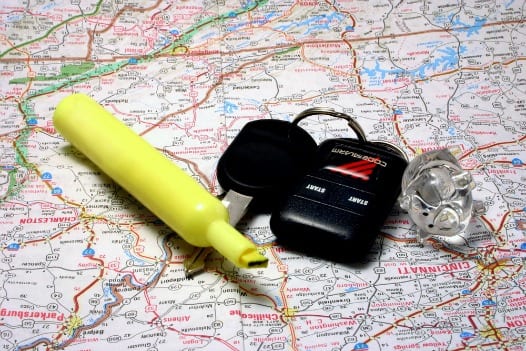Traveling on a Budget: 10 Tips to Save Cash
Home > Debt Help Advice >
We all know traveling isn’t cheap or easy. Depending on the destination and the length of stay, a vacation can take months of researching, planning and saving. Despite this, people across the globe continue to travel in droves, with a full 1 billion international tourists in 2012.
In a tight global economy, this alone is proof that you can travel on a budget and still enjoy a successful vacation; a limited budget doesn’t have to dictate the quality of your trip. In fact, having a predetermined budget and limited funds can actually improve your vacation in many ways. Some people prefer this type of travel because of the creativity it spurs.
When you’re planning a vacation on a budget, follow these 10 tips to save money without compromising your vacation:
- Plan ahead. Book flights and hotels early for cheaper prices. You should also look into local eateries and other places you may want to stop at so you can choose ones that both sound good and are reasonably priced.
- Create a budget before the trip. If you have spending limits in mind before you set out, you’ll be more willing to pass up spontaneous temptations like expensive drinks. However, a budget is useless if you choose to ignore it; it’s important to keep track of your spending during the trip and make sure you don’t spend more than you intended to.
» Learn More: How to Cut Expenses - Travel during off-peak seasons. Avoiding tourist-heavy months means hotels and flights will be cheaper. You’ll also deal with fewer crowds and shorter waits for any attractions you plan to visit.
- Check Groupon and LivingSocial for savings. You can use these and other daily deal websites to find discounts on everything from local eateries to full vacation and resort packages.
- Avoid hotels when possible. If you’re traveling in a large group or planning an extended stay, look into renting an apartment rather than staying at a hotel. This can be significantly cheaper but may require a deposit. If the stay is shorter or you have a smaller group, try to find hostels in the area. Boarding at a hostel can be a fraction of the cost of a hotel room. Or use sites like Couchsurfing.org to find safe accommodations with local residents.
- Look for discounts before you go. Find out what establishments offer student, senior and AAA discounts. Such saving opportunities can create much-needed wiggle room in your budget.
- Travel with a friend. Coordinating your trip with a friend can mean savings for both of you. It creates the opportunity to split expenses like gas and hotel costs.
- Don’t be afraid to haggle. If you visit flea markets or similar shops, shopkeepers will probably be willing to haggle with you. This can help you save money on any souvenirs or other discretionary purchases.
- Stay off the beaten path. Avoid tourist-heavy locations, as they tend to be overpriced. Instead, visit local shops and attractions. This can help you save money as well as see a different side of your destination.
- Bring your own food. Whenever possible, stock up on sandwiches and snacks for the trip. Avoid buying meals at the airport or on the road, and don’t touch the hotel minibar. These are small charges that can add up fast.
Traveling on a budget can be somewhat restrictive, but its perks are highly rewarding. In addition to keeping money in the bank, you’ll have the opportunity to see your destination in a new light, meet residents and get creative with your daily activities.

